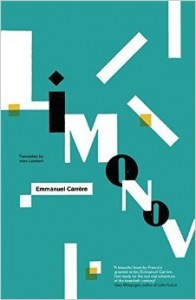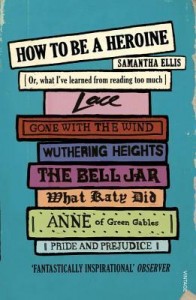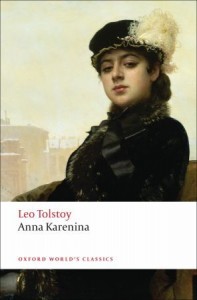 As most people know, last month I was feeling very stressed about work and I found it was really affecting my reading. I am pleased to say that this month my reading was better than average and this is thanks to the BookTubeAThon. If you are not aware, I am a BookTuber as well as a blogger and I have been creating videos most of the year in an effort to improve myself. I found it has built confidence and really helped my ability to articulate all my bookish thoughts. I hope it might help with all thoughts, but only time will tell. BookTubeAThon is a week long readathon where people in the BookTube community come together to read and complete challenges.
As most people know, last month I was feeling very stressed about work and I found it was really affecting my reading. I am pleased to say that this month my reading was better than average and this is thanks to the BookTubeAThon. If you are not aware, I am a BookTuber as well as a blogger and I have been creating videos most of the year in an effort to improve myself. I found it has built confidence and really helped my ability to articulate all my bookish thoughts. I hope it might help with all thoughts, but only time will tell. BookTubeAThon is a week long readathon where people in the BookTube community come together to read and complete challenges.
This event happened in the first week of August from the 3rd to the 9th. I was unsure if I should take part in the readathon but decided I need to push myself a little bit and created my TBR video in preparation for the week. While one of the challenges was to complete seven book for the week (which I failed) I think it did a world of good. I also managed to finish six books in the week. The first book I read was Mislaid by Nell Zink which I found problematic, I did talk a bit about my issues in my BookTubeAThon Vlog video, so I will not go into too much details here and you can wait for my review (I am very behind so might take a while) for that. The next book I read was Bad Nature, or With Elvis in Mexico by Javier Marías, which was translated by Esther Allen. Now this was for a challenge were a read a book without letting go of it (which is a stupid challenge) but obviously I needed something quick. I am not sure who recommended this novella so I cannot thank them but this was an amazing read. It explored some interesting ideas of translations, and the relationship between the translator and everyone else. This was written in Spanish, translated into English and it talked about a Spanish translator, which gave it a very meta feel.
After that, I read Where I’m Reading From by Tim Parks and this book is different than I expected, I thought it was a memoir about reading but it turned out to be a collection of essays. I also finished another non-fiction book on audiobook; The Lucifer Effect: How Good People Turn Evil by Philip Zimbardo which just reminds me I want to read so many more books on psychology. This book sparked a blog post recently too. I then read In Watermelon Sugar, the first of three books I read as part of a Richard Brautigan read-along for the month, and after that was an espionage novel called Leaving Berlin by Joseph Kanon and these were all the book I managed to read for BookTubeAThon. The last book would have been Motherless Brooklyn by Jonathan Lethem but I got so sucked into this novel, I wanted to take my time and savour all it; it ended up being my favourite for the month.
This readathon was a lot of fun; I read a decent amount of books, even if I did not complete all the challenges. It really got be back into reading, and I managed to keep a decent amount of momentum for the rest of August. The next book I did complete was The Windup Girl by Paolo Bacigalupi, which was for a buddy read. I do not know if I am any good at buddy reading but it is fun to have someone to talk to about a particular book; it also makes it a more social activity. For my in-real-life book club we had to read The Green Road by Anne Enright and that was recently long listed for the Man Booker Prize. I really enjoyed the way Enright took fragments of each person’s life and combined it into this domestic drama; some people in the book club had a bit of a problem with that style of writing but for me it just worked.
I have already mentioned In Watermelon Sugar but I also read a collection of poetry call The Pill Verse the Springhill Mine Disaster by Richard Brautigan. I like his poetry style; they are short poems that often pack a big punch. I then read Trout Fishing in America by Richard Brautigan to finish off my Brautigan read-along, I plan to read more of his books in the future but this was a great introduction to this author.
I then went onto a bit of a non-fiction kick when I read Bonk by Mary Roach, You’re Never Weird on the Internet (Almost) by Felicia Day, Postmodernism: A Short Introduction by Christopher Butler and My Reading Life by Bob Carr. All very different books but I am starting to love non-fiction books and I think books like Bonk and Postmodernism: A Short Introduction are good ways to do that. Mary Roach is a wonderful writer and I think I have found an example of the writer I would like to become in her book. I will have to practice more and read everything Mary Roach has written but it is nice to have a goal. Also Felicia Day’s memoir talked a lot about goals and failures so Never Weird was really helpful in that aspect.
The last novel I read this month was the final book in Jeff Lindsay’s Dexter series, Dexter is Dead; I have been reading these books all my reading life and it is a little sad that the series is ended. Lindsay’s writing style is not that strong but he helped me get into reading. At one point I did want to write like him, I love the inner struggle of Dexter and the moral questions that are explored but the series was a bit of a hit or miss. However there is a real sense of nostalgia going back to those books for me, and this is one of the few series that I have actually completed.
That was my reading for the month of August; I am very pleased with my progress. You might have also known I have fully migrated over to Knowledge Lost and am now blogging about more than books. I hope to catch up on my reviews (I think I have 30 to write) but I might do some mini reviews. My goal is to explore more than just literature on my blog and on my YouTube channel. It is weird to think I have become addicted to YouTube but I think it has been great for me. Next month I plan to read Valley of the Dolls by Jacqueline Susann, Satin Island by Tom McCarthy, Choke by Chuck Palahniuk and reread The Handmaid’s Tale by Margaret Atwood. There are so many other books I want to read but lets see how I go. Let me know what your August was like in the comments below.
Read More




 As most people know, last month I was feeling very stressed about work and I found it was really affecting my reading. I am pleased to say that this month my reading was better than average and this is thanks to the
As most people know, last month I was feeling very stressed about work and I found it was really affecting my reading. I am pleased to say that this month my reading was better than average and this is thanks to the  Title: Smoke (
Title: Smoke (
 The second half of the year is upon us; it really is hard to believe the year has gone this far. How has everyone’s reading been for the past six months? I have personally had a great half-year reading and hope the next six months are just as productive. This month’s theme is books about books and we are reading How to be a Heroine by Samantha Ellis. I am so pleased with the choice and looking forward to some good discussions over on the
The second half of the year is upon us; it really is hard to believe the year has gone this far. How has everyone’s reading been for the past six months? I have personally had a great half-year reading and hope the next six months are just as productive. This month’s theme is books about books and we are reading How to be a Heroine by Samantha Ellis. I am so pleased with the choice and looking forward to some good discussions over on the  As I look back at the first half of 2015, I tend to wonder where all the time went but I also think about the 55 books I have read so far this year. As most people know, I have decided to do some more re-reading and focus on translated fiction; in particular Russian literature, where I am determined to specialise and become somewhat of an expert. Sure, it is a big task but there is something about the challenge that excites me. It has revitalised a joy for literature that I feel was missing. This does not mean I am going to stop reading and reviewing other things, I just have a goal in mind.
As I look back at the first half of 2015, I tend to wonder where all the time went but I also think about the 55 books I have read so far this year. As most people know, I have decided to do some more re-reading and focus on translated fiction; in particular Russian literature, where I am determined to specialise and become somewhat of an expert. Sure, it is a big task but there is something about the challenge that excites me. It has revitalised a joy for literature that I feel was missing. This does not mean I am going to stop reading and reviewing other things, I just have a goal in mind. Title: Double Indemnity (
Title: Double Indemnity ( May has been a big month for me. I have been preparing for a trip to New Zealand and I also took time off before hand to get some reading done. In fact, I have scheduled this post in advance, so it will be posted on the right day. This does mean I will not be talking about my entire month of reading but just the highlights upon writing this. If you do want to see a full monthly wrap up, you will just have to subscribe to
May has been a big month for me. I have been preparing for a trip to New Zealand and I also took time off before hand to get some reading done. In fact, I have scheduled this post in advance, so it will be posted on the right day. This does mean I will not be talking about my entire month of reading but just the highlights upon writing this. If you do want to see a full monthly wrap up, you will just have to subscribe to  Title: Wolf Totem (
Title: Wolf Totem ( Title: Anna Karenina (
Title: Anna Karenina (